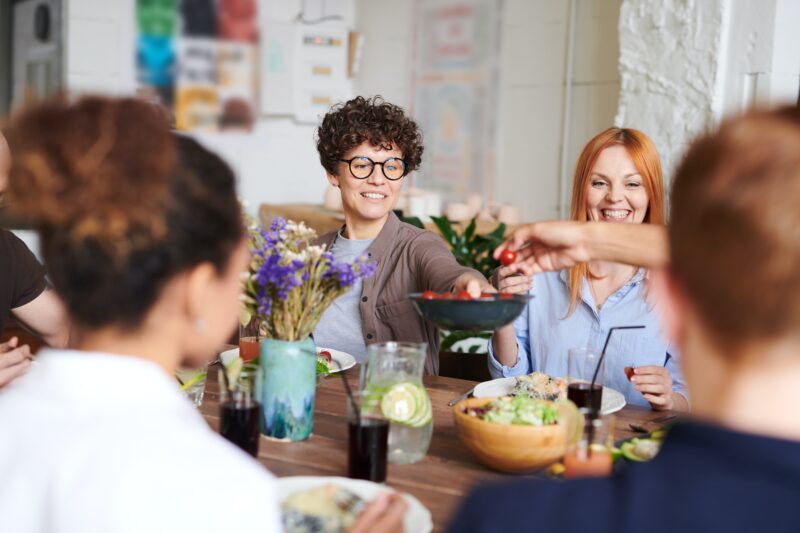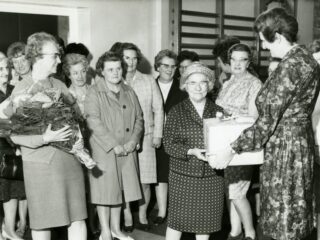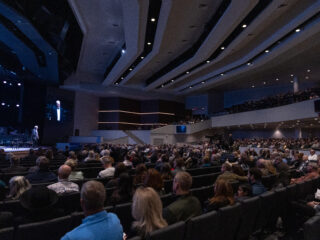In the little congregation at Mill Village Baptist Church in which I grew up, everyone was “Brother” or “Sister”. The pastor was “Brother Barrett” and the worship leader (we called them choir directors) was “Brother Veach”. Their wives were “Sister Barrett” and “Sister Veach.” Everyone in the church was called brother or sister. If you were still a youngster, then you were called by your first name. I was “Brother Mike.” Once you were old enough, I guess after you got married and got a job, you were called by your last name – “Brother Glenn”.
As you can imagine, calling everyone a brother and sister was fodder for the sarcastic humor of me and my friends. We didn’t take it seriously. After all, how could anyone be a brother or sister if they weren’t around to help with chores?
I was an idiot.
I would be a lot older before I understood the significance of this tradition, and it would take me even longer to fully grasp what a privilege it was to be called “brother.”
In the early church, it wasn’t unusual for someone to show up and tell the congregation they had been disowned by their family because they had decided to become a Christ follower. In these times, being without family was devastating. Remember, there were no social services. If you needed help, your family was the only one you could count on for help. You learned your trade from your family. You were educated by your family. Without your family, you were alone in the world.
So, when a new believer showed up at church, they were given a new family. The pastors would say, “Here are your mother and father. Here are your brothers and sisters.” At that moment, the young Christian would go from being an orphan to having a family where they were loved and protected. That’s one of the reasons Christians called each other “brother” and “sister.” They understood they were being made into the family of God by the Spirit’s work with Christ as their big brother.
These days, while there are still stories of people being disowned by their families because they decided to become a Christ follower, we don’t see much of this in North America. Yet, we live in a time of radical disconnectedness and loneliness. Various mental health organizations and cultural experts have gone so far as to call loneliness an epidemic.
The unintended consequence of our addiction to social media is that, while we feel like we know everything about our friends (what they had for lunch, what they wore to work and out for the evening, and pictures of their dog wearing sunglasses, etc…), we are more distant from each other. We text, message, and email each other, but we’re never together. We’re not together when we’re in the same room! Ask any parent of a teenager about sitting in the same room with their child and trying to carry on a conversation only to find their child glued to his or her screen.
This chronic loneliness is evident in our growing crisis of mental health. Depression, addiction, anxiety, and even suicide are causing many of us to rethink our life choices. Do we really want to be this wired up all the time just to find ourselves so distant from the ones we say we love the most?
Add to this the fragmentation of the family and we end up with a generation of orphans – young men and women who are coming into their adulthood without the benefit of mentors and coaches to help them walk through the growing complexities of adulthood. Article after article has given us the details of how young adults are postponing life moments such as getting married, buying houses, or even starting careers.
Sure, part of it is the realities of our changing economy, but some of the delay is caused because young adults are too afraid to start. They don’t know what to do.
All of us in church life are focusing on creating small groups for disciple making. Nothing works better for helping people grow in their faith better than small groups or one on one mentoring and coaching.
But groups do more than that. Groups recreate family units. Young adults find brothers and sisters, uncles and aunts, parents and grandparents – all in the faith – when they find a local church. They find someone who can teach them to balance a checkbook, fill out a resume, soothe a teething baby, and work through the daily challenges of marriage. They find a safe place to share their sorrows and a group eager to share their joys. After all, half the fun of something good happening in your life is celebrating it with friends. There’s nothing lonelier than having good to share but no one to share it with.
Jesus talked a lot about hospitality. He talked a lot about welcoming strangers and taking care of widows and orphans. He told stories about little brothers coming home and fathers throwing outrageous parties. He told stories about weddings and friends loaning each other loaves of bread late at night. He told us about a Father who always loves us no matter what and whose love is so large it never ends.
Our best evangelism doesn’t happen when we are able to present a philosophical case defending the faith. More times than not, it happens when we invite someone to sit down at our table and then, welcome them into our family.
Our world is very lonely. It need not be. God has made sure that there are enough families for all of us. Find yours.









